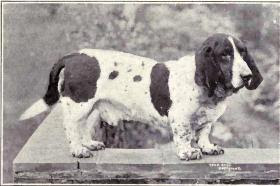In his book and elsewhere Nathan Winograd promoted the concept of the "No-Kill Equation" listing the programs which needed to be set up if a community was to end the destruction of healthy unwanted pets.
We could be so close...
The
No-Kill Equation
I.
Feral Cat TNR (Trap Neuter Return)
Like everything else this needs more volunteers, money and effort, but the fundamental argument has been won. Virtually no-one catches feral cats to "save" them by putting them down as it's been recognised that they're essentially a wild animal that loosely associates with humans and that the humane thing is to control numbers by neutering.
II.
High-Volume, Low-Cost Spay/Neuter
Anyone who wants to get their pet neutered and doesn't have enough money can find help somewhere, though they might need to search for it. We've more or less achieved a point where every puppy or kitten bred has a value to someone.
III.
Rescue Groups
There are not enough of them, but one positive aspect of the Panorama program was the fact that local authority pounds were ringing round asking if anyone could take animals whose time was running out. There didn't seem to be any reluctance to release pound animals to small rescues to give them a better chance.
It may help that there seems to be a much less confrontational attitude to saving "death row" pound dogs. Pound rescue groups regularly post online begging for homes with details of animals who will be put down unless a placement is found within the next few days, but I don't think I've ever seen a post that attempted to "name and shame" particular pounds.
IV.
Foster Care
Comparatively few pounds operate as animal shelters in quite the way that they do in the USA and animals are normally passed on to other rescue organisations. Battersea and Wood Green are exceptions. The RSPCA, which is one of the largest rehoming organisations for cats and dogs, does three-quarters of its rehoming via the network of volunteer-run branches and it's probably easier in some ways for volunteers to recruit and assess other volunteers as suitable fosterers.
We always need more foster carers, although we may not be very good at getting back to you immediately because we're so overwhelmed with things that need doing.
V.
Comprehensive Adoption Programs
Again, because of the heavy involvement of volunteers, it's often actually easier for us to visit adopters and arrange adoptions at weekends and in the evening when more of us are available.
VI.
Pet Retention
Absolutely crucial.
I believe this is a very important area where not enough is known about what's happening on the ground. If large numbers of pets are being put down at vets because their owners can't pay for treatment this isn't really any better than if the same animals were handed in to a shelter that then put them down because it didn't have funds for treatment.
The RSPCA runs a network of clinics and animal hospitals, but in many areas there is not much more than a safety net service of assistance with the cost of treatment at private vets. This may not do very much more than make it possible to treat minor problems like infections and flea allergy and to ensure that suffering animals are put down rather than being allowed to die.
This is one of the most expensive things we try to do and it's probably also one that gets relatively little public support because of a feeling that pet owners who don't budget for their animals' treatment are just trying to get something for nothing.
VII.
Medical and Behavior Rehabilitation
Again crucial. Most rescues are NOT putting down lots of healthy animals, but they may be putting down animals who could be saved if more funds were available for treatment.
VIII.
Public Relations/Community Involvement
Could do better. Most people have only the vaguest idea what the RSPCA does in terms of rehoming and are extremely confused about the difference between us and the PDSA.
IX.
Volunteers
See above. The RSPCA and Cats Protection are both large welfare organisations whose rehoming work is very largely done by volunteer effort.
X.
Proactive Redemptions
Chipping! There's also a huge public education issue about how to go about searching for a lost cat and the new problem of injured cats being taken long distances from the place where they were found when veterinary treatment is needed late at night when only a few emergency vet centres are open.
XI.
A Compassionate Director
One would hope all shelter directors would be compassionate.
Again, the heavy involvement of volunteers (and low pay for dog pound workers) means that no-one is involved in rehoming who isn't doing it for the animals rather than simply as a local government job.
A caveat: it is possible to lean too far in the opposite direction. For some animals there may be worse things than being put down if they are very distressed by being held in kennels and no foster home is available.













































